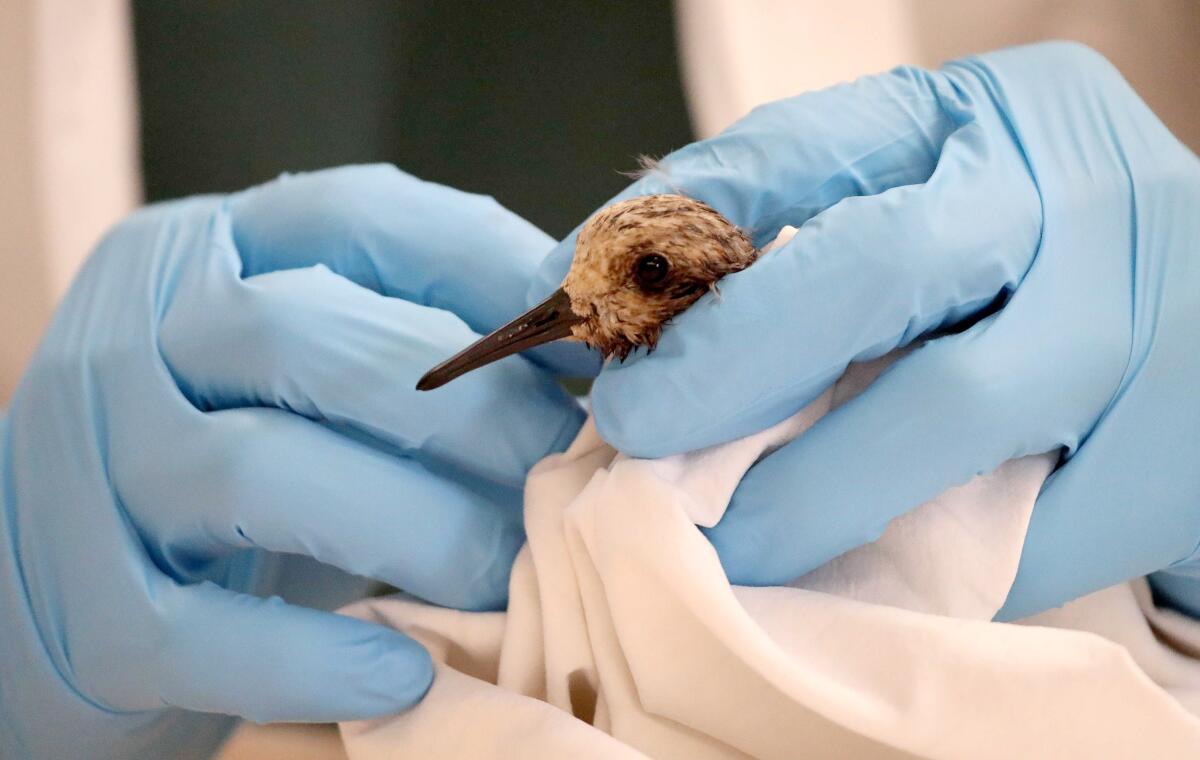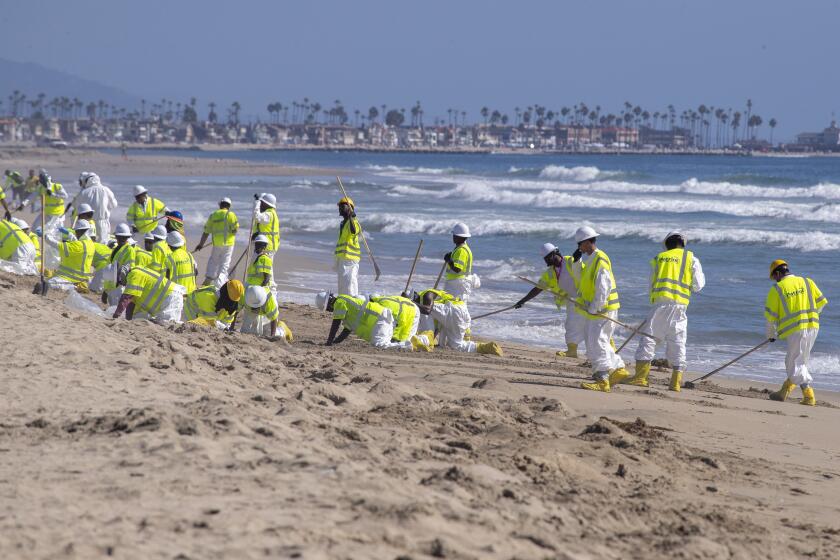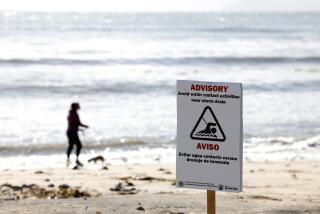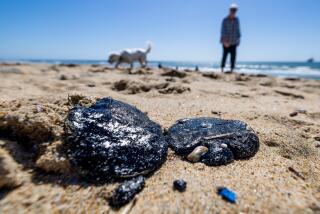How you can help with oil spill cleanup efforts

- Share via
The California Department of Fish and Wildlife’s Office of Spill Prevention and Response is now accepting volunteer applications from the public to help with cleanup efforts after the Orange County oil spill.
With more than 130,000 gallons of leaked crude oil traveling along the Southern California coastline, leaving behind a trail of thick sludge that is devastating wildlife and ecological reserves, many Southern California residents are wondering what they can do to help.
The Orange County Health Agency‘s warning from Oct. 3 urging the public to stay away from the affected areas and to seek medical attention if exposed remains in effect. Crude oil is especially toxic and can cause physical harm, including skin irritation and vomiting.
A massive oil spill off the Orange County coast has fouled beaches and killed birds and marine life
Volunteers will clear debris and trash from shorelines before oil makes landfall, said Suzanne Welsh, Orange County Coastkeeper’s volunteer coordinator. This ensures that the beaches are clear, allowing professional cleanup and restoration crews to speed up their processes.
The Department of Fish and Wildlife requires volunteers to:
- Be 18 or older
- Be able to lift 25 pounds
- Follow County Public Health COVID procedures while participating in the clean up
To register as a volunteer, complete the online form. Beyond basic information, the form also asks about your level of training and experience.
All volunteers have to complete a 30-minute training session before they can go out into the field, Welsh said. The training video will be sent out to those who register within the next few days.
If volunteers are needed to help remove tar balls, which are toxic patches of oil that wash up on the shore, they’ll be required to complete an additional four-hour training session.
Trained spill response contractors are still working to stop the spread of the oil and clean up the parts of the environment that have been affected, including wildlife. “Steer clear of the beaches and oceans for now and let the professionals begin their work,” said Garry Brown, founding director of Orange County Coastkeepers.
Brown also warned boat owners not to clean their oil-stained vessels while they’re in the water. Dish soap may work well for cleaning animals, but it traps the oil being cleaned off a boat and causes it to sink to the bottom of the harbor. He said boat owners should hold off until more information is available.
Even if you can’t volunteer at the beach, there are still ways you can help.
“Right now the wildlife rescue teams are in dire need of donations,” the city of Huntington Beach stated on Instagram; it directed donors to drop off supplies at the Bolsa Chica Conservancy in Huntington Beach or the Pacific Marine Mammal Center in Laguna Beach. Grease-cutting dish soap and gloves are some of the top requested donations from organizations.
Monetary or supply donations can also go to local and statewide organizations, including:
Meanwhile, the following areas are closed to the public until further notice:
- Newport Beach beaches
- Laguna Beach city beaches
- Newport Harbor
- Crystal Cove
For more information on the oil spill, see:
- the Los Angeles Times’ oil-spill coverage
- the Orange County Health Care Agency’s beach closure map
- the Southern California Spill Response site set up by federal and state agencies and Amplify Energy, the offshore oil drilling company responsible for the spill
Karen Garcia and Ada Tseng contributed to the reporting of this story.
More to Read
Sign up for Essential California
The most important California stories and recommendations in your inbox every morning.
You may occasionally receive promotional content from the Los Angeles Times.












